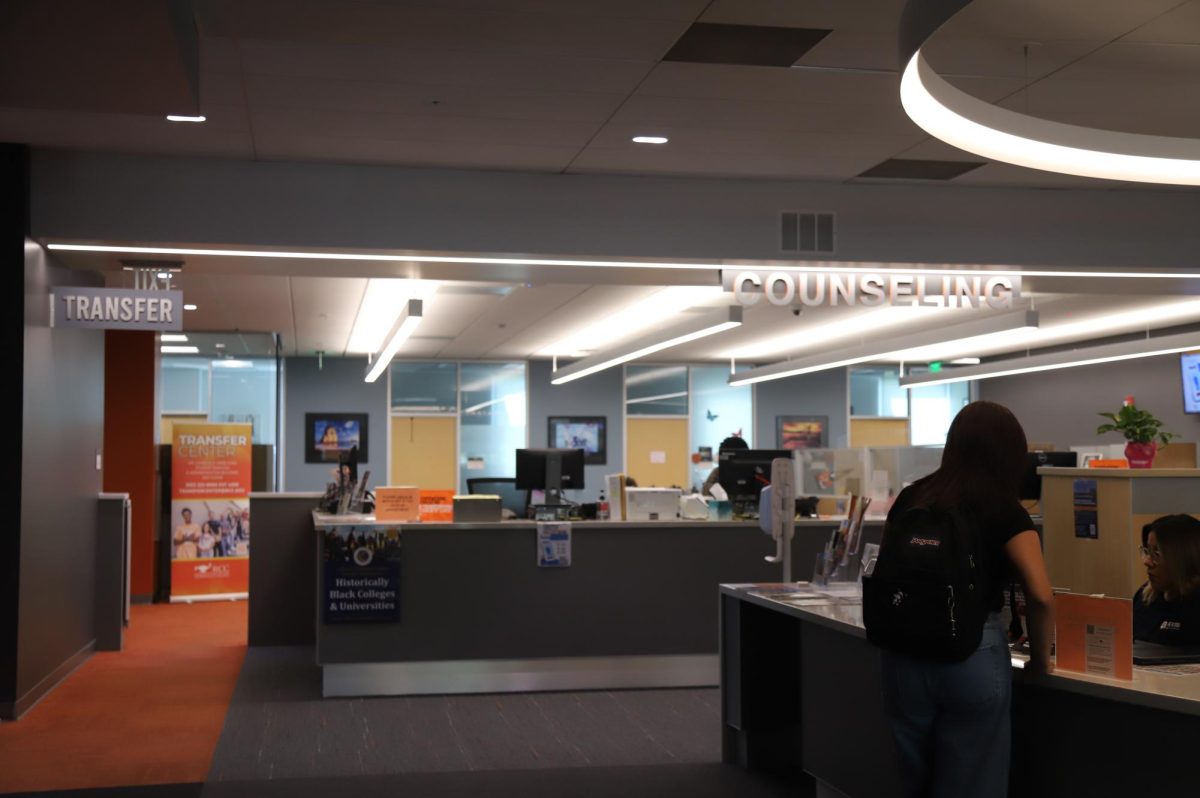Autumn Yi | Staff Writer
The atmosphere at Riverside City College for the first couple weeks every semester is competitive.
As early as 8 a.m., parking is already unavailable.
There are no less than 50 students who are competing for a parking spot at any given time; probably the same 50 students who have been circling the parking lot for the past hour.
The line for financial aid is out the door, counseling sessions are already full for the next couple months, and the writing & reading center has lines wrapped around the building.
Everything about the first couple weeks screams “survival of the fittest.” It’s a race against time.
Students are extremely lucky if they register for all their classes. More than likely, the students are waitlisted.
They have two weeks to attend every class meeting and hope enough people drop so they can be added to the roster.
Although teachers are giving out add codes up to the last minute, there are still usually a few students who are turned away.
But what happens if a student waitlisted for a class they want to take that is pass/no pass?
Pass/no pass is an option which takes the place of traditional letter grades.
Any grade of a C or above is simply marked as “pass,” and a failed grade is marked “no pass.” In either case, the grade is not factored into the GPA.
This makes it a great option for elective classes or classes in which a student is not confident of their success.
The school doesn’t want students to only take a class pass/no pass because they have an idea of what their final grade will be, so the deadline to take a class pass/no pass is at the end of the first two weeks.
That’s the same deadline as the add period.
If a student wants to take a pass/no pass class but is waitlisted until the last day of the add/drop period, when do they find the time to fill out the paperwork?
They don’t. Welcome to RCC: you snooze, you lose.
But this is a problem that can be easily fixed.
Why not make the deadline for pass/no pass at the end of the third week?
Three weeks in a class usually means the class has met a total of six times.
Teachers do not give major tests or assignments in the first three weeks, because the class has not had enough time to learn.
The students would still make the choice to commit to a letter grade or take the pass/no pass class before they had any idea of the grade they will receive in the class.
There would be less paperwork for the admissions office to handle, because the first two weeks are crazy enough.
It would give waitlisted students a chance to make that decision as well, instead of cheating them out of the option. Higher education is about options and opportunities.
As students learn about the world, they have more insight about what direction they want their life to go.
A college degree also provides more career options.
Community College is specifically designed to give opportunities to people who have missed out on other options due to poor choices, age, or economic background.
As college students, we should be entitled to exercise responsibility and control over our own academic career.
Why shouldn’t the school embrace that and work towards giving students all the options they can?






